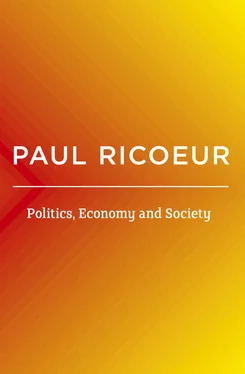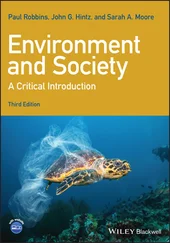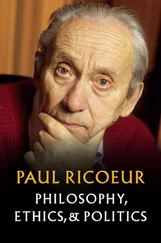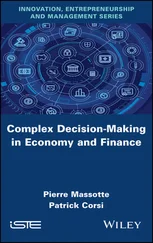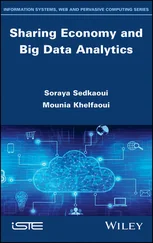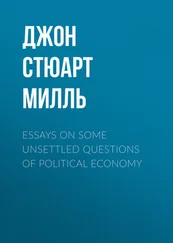We can thus, already at this period, speak of materialism; Marxist materialism is prior to the theory of class struggle; it signifies that alienation stems from the material existence of human beings and extends up to their spiritual existence. But materialism takes on substance when the relation of spiritual life to material life is conceived in close connection to the idea of “reflection.” The German Ideology is a critical witness here: it is Marx’s most materialist text. Ideas “are continually evolving out of the real life-process.” 3The nature of individuals must be found “not as they may appear … but as they actually are, as they act, produce materially.” 4Ultimately, it must be said that “There is no history of politics, law, science, art, religion”: “such is the true materialism of real society.”
This materialism seeks to make itself scientific through a history of “money”: in texts prior to the Manifesto , money is already the instrument of the material alienation of human beings; to understand its mechanism is already to overcome alienation ( se désaliéner ). A new critique is thus born, which is no longer a critique of consciousness by consciousness, but a real critique of real conditions. The sharpest thrust of this critique is the last of the Theses on Feuerbach : “The philosophers have only interpreted the world in various ways, the point is to change it.”
The Economic and Philosophical Manuscripts sum up the situation well, in calling for “the positive suppression of all estrangement [alienation], and the return of man from religion, the family, the state, etc., to his human , i.e. social existence.” The text continues: “Religious estrangement as such takes place only in the sphere of consciousness , of man’s inner life, but economic estrangement is that of real life – its supersession therefore embraces both aspects.” 5
Why speak of a Marxist nebula with regard to these texts? Because materialism can receive several meanings. This materialism is not a materialism of things , but a materialism of human beings . Better yet, a realism: the fact that the individual is a “producer” underscores that she is not nature, animality; moreover, the individual does not “produce” simply to live, but to become human and to humanize nature. Nature itself appears as the “inorganic body of the individual.” Work thus becomes more than an economic category: through work, people express themselves, grow, create. Through work, it would seem that Marx is pursuing a dream of innocence: the reconciliation of the human being with things, with others, with the self – reintegration “at home” ( chez soi ).
This is why human alienation is itself always more than economic; it is the total dehumanization of the individual. “What the product of his labor is, he is not.” 6Marx knows what this means for the individual, producing himself as merchandise, before understanding the mechanism of surplus-value. Alienation is scandalous precisely because “Labor is the only means whereby man can enhance the value of natural products, and labor is the active property of man … [and] the only constant price of things.” 7One does not see how this description can be given without an expression of indignation, a properly ethical moment of evaluation: “The devaluation ( Entwertung ) of the human world grows in direct proportion to the increase in value ( Verwertung ) of the world of things.” 8
However, if Marxism, in its beginnings, is more than economic, on what level is it to be situated? Is it philosophy? Sociology? It seems to me that Marxism created a mode of thinking that is to scientific economics what phenomenology is to psychology. There is perhaps no mechanism for which Marx would truly be the inventor. To borrow Father Bigo’s expression, “Marxism is not the explanation of a mechanism, but an explanation of existence.” Marx’s science
does not aim at eliciting empirical laws and finding better forms of organization. It takes capital and value as situations in which human beings find themselves, and it sets for itself the task of showing the deep contradictions they contain. Marxist science – lengthy analyses would be necessary to make acceptable this idea which is, at first glance, disturbing – is actually a philosophy of man, a meta-physics of the subject, more precisely a meta-economics of capital and value. 9
It is because this is a meta-economics that the Hegelian law of contradiction and reconciliation could be taken up in a dialectic of real human beings. Humanity’s movement then appears as the passage from unity without distinction (archaic communism) to the economy of classes, which is the antithesis of the preceding thesis. The synthesis is thus a return to the thesis, but by means of “negation”: from the class-based economy, the technology is retained but the exploitation is suppressed. This sort of overview escapes empirical verification. It is rather a matter of illuminating by the totality of history each of its moments; the grasp of this totality includes at one and the same time a sociological forecast, a judgment of economic and ethical value, and a maxim of action.
By the same stroke, the exploitation of man by man that introduces the “negative” is neither a moral evil nor an external fate ; it is not a dialectic external to the human being, a mechanical determinism, but a movement of the human being as such: “ the whole of what is called world history is nothing more than the creation of man through human labor.” 10On the other hand, the division of labor necessarily produces the division into classes, without anyone being held responsible. Exploitation and alienation cannot be broken down into individual acts of violence, into robbery, tricks, fraud; everything occurs as if humanity taken as a whole had preferred progress through suffering over contentment in stagnation.
This is why Marx cannot be considered a moralist, despite the role of indignation in the conscious awareness of economic evil and of protest on behalf of the human laborer. For the denunciation is not cast on the level of human intentions, but on the level of the relations of production in which they are implicated. This is the place to remember that the hero of the Marxist opus is not the capitalist, nor even the proletarian, but capital as the alienated portion of the human being which has become situation and thing. Thus, the conscious awareness of this situation, in Marx himself for example, and in all who discover their alienation, is not an ethical liberation, valued for its purity, but a moment of progress by which history as a whole passes from alienation to freedom. In this way, “consciousness” – psychological and moral – has neither the power to initiate alienation nor the responsibility for overcoming alienation: the “ethical” act constituted by Marx’s work itself locates itself within the field of forces it comprises. Such is the dialectic : human, and yet not moral, governed by things, but by things that make up a part of the human being, forgotten, suppressed, alienated.
As we see, all of this is highly ambiguous and can veer either toward a highly complex humanism, or toward a very crude materialism, mechanistic and deterministic.
The Petrification of Marxism
The phenomenon of contraction, of crystallization to which we alluded in the opening section, has a threefold origin: in Marx himself, in Lenin, and in the practice of the single Bolshevik Party.
— Marx himself is responsible for the collapse of his materialism into a vulgar, mechanistic, and reified materialism. The anti-Hegelian polemic forced him to consider his system to be the inverse of German idealism: it would be the dialectic set back on its feet. But this opposite-course form of materialism ineluctably tends toward the theory of consciousness as reflection. There is no doubt that Marx gave all the necessary pledges to this theory in his own interpretation of forms of alienation other than the economic: ideology is the reflection of economic alienation.
Читать дальше
